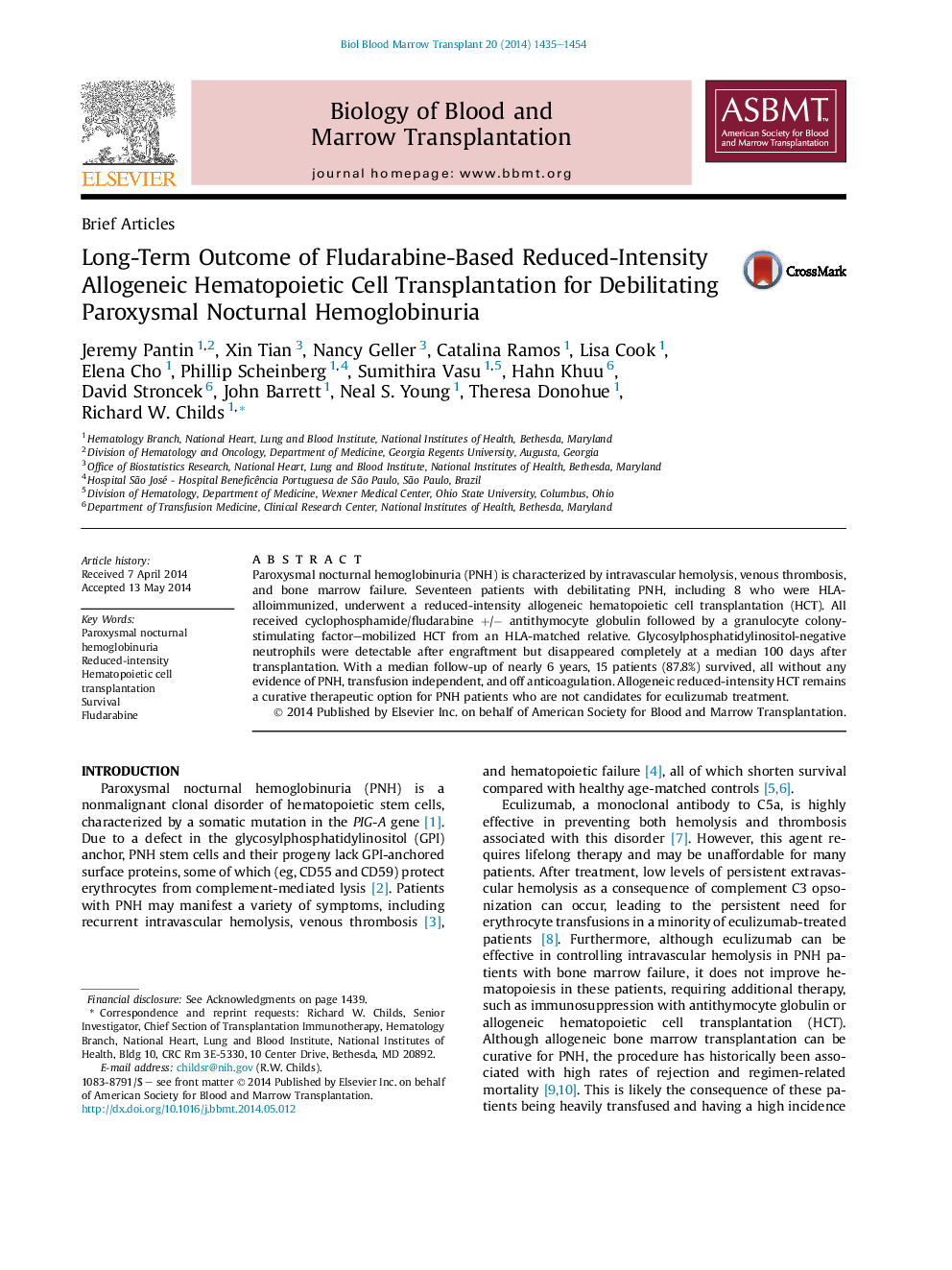| Article ID | Journal | Published Year | Pages | File Type |
|---|---|---|---|---|
| 2101917 | Biology of Blood and Marrow Transplantation | 2014 | 5 Pages |
Paroxysmal nocturnal hemoglobinuria (PNH) is characterized by intravascular hemolysis, venous thrombosis, and bone marrow failure. Seventeen patients with debilitating PNH, including 8 who were HLA-alloimmunized, underwent a reduced-intensity allogeneic hematopoietic cell transplantation (HCT). All received cyclophosphamide/fludarabine +/− antithymocyte globulin followed by a granulocyte colony-stimulating factor–mobilized HCT from an HLA-matched relative. Glycosylphosphatidylinositol-negative neutrophils were detectable after engraftment but disappeared completely at a median 100 days after transplantation. With a median follow-up of nearly 6 years, 15 patients (87.8%) survived, all without any evidence of PNH, transfusion independent, and off anticoagulation. Allogeneic reduced-intensity HCT remains a curative therapeutic option for PNH patients who are not candidates for eculizumab treatment.
